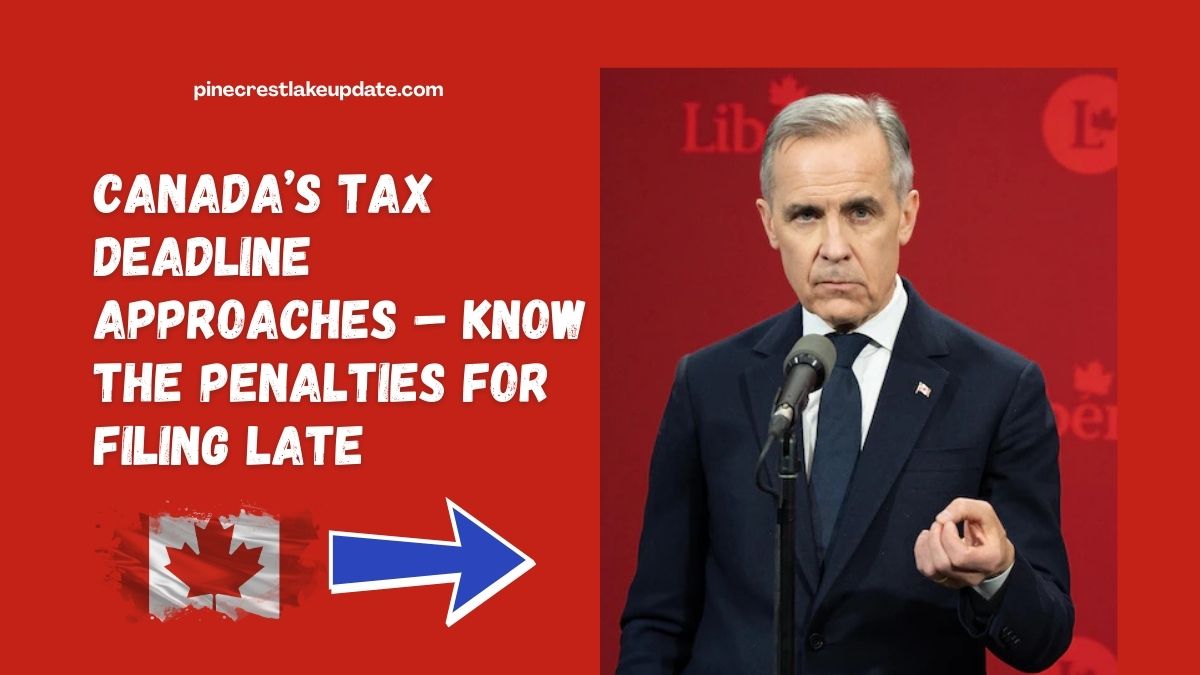As the tax deadline in Canada approaches, those who have not yet filed their 2024 income tax return should start preparing.
The Canada Revenue Agency (CRA) has issued reminders for Canadians to act quickly, as missing the deadline can lead to hefty penalties and delayed government benefits.
Current Filing Status in Canada
As of last week, only 16.8 million Canadians have filed their tax returns for the current season. This is approximately half of the 33.5 million returns filed last year.
With the filing deadline of April 30, 2025, rapidly approaching, now is the time for those who have procrastinated to get their returns filed.
Tax Filing Deadline for Most Canadians
For the majority of Canadians, April 30, 2025 is the deadline for filing taxes and paying any outstanding amounts. If you haven’t filed yet, mark this important date on your calendar to avoid penalties and fees.
Consequences of Missing the Tax Deadline
The CRA is serious about enforcing tax deadlines. If you miss the Canada tax deadline, there are significant consequences, especially if you owe taxes. The penalties for late filing can add up quickly and can become very costly.
Late Filing Penalties
If you file your taxes after the deadline and owe money, the CRA will charge a late-filing penalty. This penalty is calculated at:
- 5% of the balance you owe as of April 30, plus
- 1% for each full month your return is late (up to a maximum of 12 months).
Increased Penalties for Repeat Offenders
If you have already been charged a late-filing penalty in 2021, 2022, or 2023, the penalties increase substantially for the 2024 tax year. In this case, the penalty jumps to:
- 10% of the amount you owe, plus
- 2% for each full month your return is late (up to a maximum of 20 months).
As you can see, the penalties for late filing can escalate quickly, leading to significant financial consequences.
Interest Charges on Unpaid Balances
In addition to the late-filing penalty, the CRA will also charge compound daily interest on any unpaid balance starting May 1, 2025. This includes taxes owed, interest on taxes, and amounts resulting from reassessments.
For the second quarter of 2025, the interest rate is set at 8%, though this rate can fluctuate over time. This means that even small amounts of unpaid taxes can quickly accumulate substantial interest.
Impact on Government Benefits
Even if you don’t owe taxes, filing late can still affect your cash flow. The CRA uses your tax return to determine eligibility for various government benefits, such as the Canada Carbon Rebate, Canada Child Benefit, GST/HST Credit, Old Age Security payments, and Canada Workers Benefit. Failing to meet the filing deadline could delay or stop these payments, creating financial strain.
Special Filing Deadline for the Self-Employed
If you are self-employed, you do have some extra time. You have until June 16, 2025, to file your taxes. However, even if you’re self-employed, tax payments are still due by April 30, 2025. Be sure to submit your return by the appropriate date to avoid penalties.
Filing Tips from the CRA
The CRA recommends filing your taxes early, even if you cannot pay the full amount right away. Filing on time allows you to avoid late-filing penalties and gives you time to make a plan for paying any balance owing. If your delay in filing is due to circumstances beyond your control, you can request relief from penalties.
Tax Deadline Summary
| Key Information | Details |
|---|---|
| Filing Deadline | April 30, 2025 |
| Late-Filing Penalty (1st time) | 5% of owed amount + 1% per month for up to 12 months |
| Late-Filing Penalty (Repeat Offenders) | 10% of owed amount + 2% per month for up to 20 months |
| Interest Rate on Unpaid Balances | 8% (subject to change) |
| Self-Employed Filing Deadline | June 16, 2025 (for filing) |
| Self-Employed Payment Deadline | April 30, 2025 |
The 2024 Canadian tax season is quickly drawing to a close. Filing your taxes on time is essential to avoid costly penalties, interest charges, and delays in receiving important government benefits.
Be sure to take action before April 30, 2025, and if you’re self-employed, remember to file by June 16, 2025. Early filing, even without full payment, can help you avoid penalties and give you time to manage any outstanding balance.
FAQs
What happens if I miss the Canadian tax filing deadline?
Missing the tax filing deadline can result in late-filing penalties, interest charges, and possible delays in receiving government benefits.
Can I request an extension to file my taxes in Canada?
If you are unable to file your taxes on time due to exceptional circumstances, you can request relief from penalties. However, your taxes must still be paid by the deadline to avoid interest.
What is the interest rate for unpaid taxes in Canada?
The interest rate for overdue taxes is 8% for the second quarter of 2025, but this rate may change over time.

